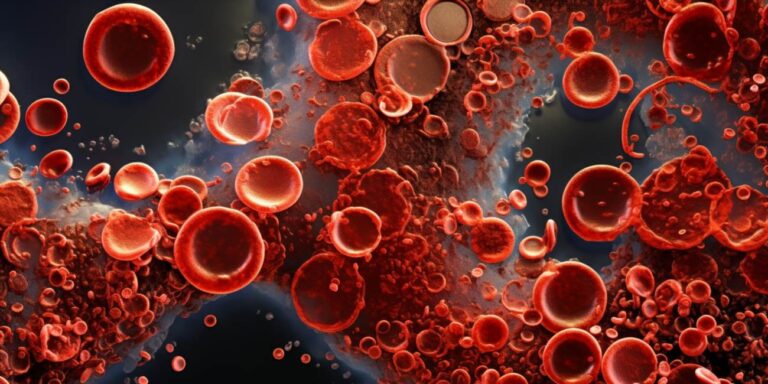Liver disease is a complex and multifaceted medical condition that can have far-reaching effects on various systems within the body. One such impact is on red blood cells, which play a crucial role in oxygen transport and overall health. In this article, we will delve into the intricate relationship between liver disease and red blood cells, exploring the mechanisms, consequences, and management of this interaction.
The liver’s vital role
Before delving into how liver disease affects red blood cells, it’s essential to understand the liver’s pivotal role in maintaining overall health. The liver is the body’s largest internal organ and serves numerous functions, including:
- Metabolizing nutrients
- Detoxifying harmful substances
- Producing essential proteins
- Storing glycogen and vitamins
The interplay between liver and red blood cells
The liver is intricately connected to the circulatory system, including the production and maintenance of red blood cells. Here’s how liver disease can affect red blood cells:
1. impaired synthesis of red blood cells
The liver plays a vital role in the synthesis of various proteins, including those necessary for the production of red blood cells. Liver disease can disrupt this process, leading to a decreased production of red blood cells, a condition known as anemia.
2. hemolysis
Liver disease can also lead to the destruction of red blood cells, a process called hemolysis. This can occur due to increased levels of bilirubin, a substance normally processed by the liver. Elevated bilirubin levels can damage red blood cells and cause their premature breakdown.
3. altered iron metabolism
Iron is essential for the production of hemoglobin, the oxygen-carrying molecule in red blood cells. Liver disease can disrupt iron metabolism, leading to either iron overload or iron deficiency, both of which can negatively impact red blood cell function.
The effects of liver disease on red blood cells can have significant consequences for the body’s overall health:
1. fatigue and weakness
Anemia resulting from impaired red blood cell production can lead to fatigue, weakness, and a decreased ability to perform daily activities due to reduced oxygen delivery to tissues.
2. jaundice
Hemolysis of red blood cells can lead to jaundice, a yellowing of the skin and eyes, due to the accumulation of bilirubin in the body.
3. increased risk of infections
Red blood cell dysfunction can weaken the immune system, making individuals with liver disease more susceptible to infections.
Managing red blood cell dysfunction in liver disease
Effectively managing red blood cell dysfunction in individuals with liver disease is crucial for improving their quality of life. Treatment approaches may include:
1. treating the underlying liver disease
Addressing the root cause of liver disease through medication, lifestyle changes, or surgery can help improve red blood cell function over time.
2. blood transfusions
In severe cases of anemia, blood transfusions may be necessary to quickly increase red blood cell counts and improve oxygen delivery.
3. iron therapy
For individuals with iron deficiency related to liver disease, iron supplementation may be prescribed to restore iron levels and support red blood cell production.
Frequently asked questions (faqs)
Q1: can liver disease be the primary cause of anemia?
A1: Yes, liver disease can directly lead to anemia by impairing the production of red blood cells.
A2: The extent of reversibility depends on the underlying cause of liver disease. Treating the underlying liver condition may help alleviate hemolysis.
A3: Maintaining a balanced diet rich in iron, vitamins, and nutrients can support red blood cell production in individuals with liver disease. Consult a healthcare professional for personalized dietary advice.
In conclusion, liver disease can have a profound impact on red blood cells, affecting their production, function, and overall health consequences. Understanding this relationship is essential for both healthcare professionals and individuals living with liver disease. Effective management and treatment of liver-related red blood cell dysfunction can significantly improve the quality of life for affected individuals.
See also:





